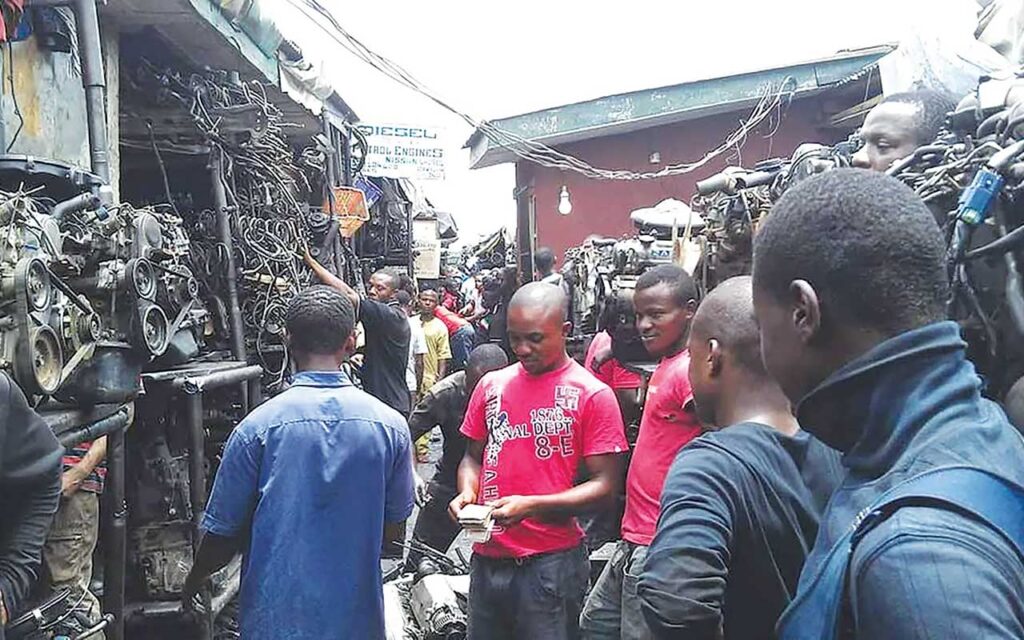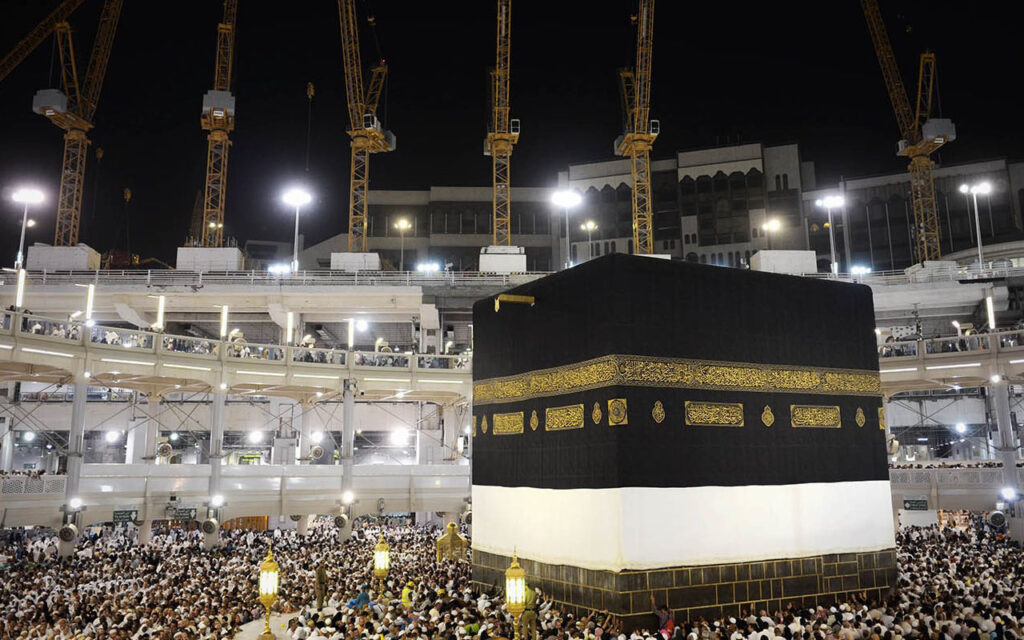 Residents of the Federal Capital Territory (FCT), Abuja, have been rattled by insecurity, especially the frequent and indiscriminate kidnapping of persons within the city centre and its outskirts. ODITA SUNDAY reports that the routine failure of intelligence gathering and poor preparedness among security agencies has come to the erstwhile haven of the ruling elites.
Residents of the Federal Capital Territory (FCT), Abuja, have been rattled by insecurity, especially the frequent and indiscriminate kidnapping of persons within the city centre and its outskirts. ODITA SUNDAY reports that the routine failure of intelligence gathering and poor preparedness among security agencies has come to the erstwhile haven of the ruling elites.
Despite multiple intelligence outfits and humongous budgetary allocation, poor preparedness continues to be the Achilles heel of security architecture in Nigeria. The security apparatus appears overwhelmed with criminals having a filled day of killing, maiming, and terrorising their victims.
The most populous Black Country is not in short supply of intelligence agencies with track records of excellence. Notable are the Defence Intelligence Agency (DIA), the National Intelligence Agency (NIA), the Department of State Services (DSS), the Police Special Intelligence Bureau (SIB), the Police Intelligence Response Team (IRT), the Nigeria Immigration Service, the NSCDC, Military intelligence, among many others.
To the foregoing agencies have been heavy budgetary votes yearly – given then little room for excuses. In the 2024 Appropriation Law for instance, the Army would be spending N787.25 billion, while N203.63 billion has been budgeted for the Nigerian Airforce, with the Nigerian Navy billed to spend N192.49 billion.
The Ministry of Police Affairs was awarded N19.67 billion, while the DSS would spend N73.75 billion and the National Security Agency has N65 billion in votes.
Similarly, the EFCC was awarded N43 billion, while N78.52 billion had been budgeted for the Ministry of Defence, with the Defence Intelligence Agency spending N41.50 billion.
The National Intelligence Agency was awarded N84.68 billion, while NSCDC would be spending N144.68 billion and N6.42 billion budgeted for the Ministry of Interior.
Reign of terror
While the spate of insecurity is nationwide, the recent turn of events in Abuja has left too little to be desired in the circle of intelligence gathering, smart operations, and humongous national resources.
The incident that triggered widespread public outcry was the abduction of 10 persons from the Sagwari Estate Layout at Dutse in Bwari Area Council of the Federal Capital Territory (FCT) on January 7, 2024.
The kidnappers had reportedly killed two of the abductees to send a warning to their relatives negotiating ransom payment. A 13-year-old secondary school student was among those killed. The bandits reportedly increased their demand from the initial N60 million per person to N100 million, totalling N700 million.
The same week, reports emerged that the kidnappers, who also operated in some villages in Bwari, had killed one of the six abducted persons, Nabeeha Al-Kadriyar, to force the family into desperation and heighten public pressure on the government.
A former Minister of Communications and Digital Economy, Prof. Ali Pantami, had disclosed that he mobilised a balance of N50 million ransom for the Al-Kadriyar family to enable them to secure the release of their remaining five daughters from the kidnappers following the murder of Nabeeha.
The Bwari kidnap spree led to the launch of a Special Intervention Squad (SIS) by police high command. But barely two days after the police high command launched the onslaught against kidnappers and bandits in Abuja general area, unknown gunmen had reportedly invaded the Army Post Housing Estate in Kurudu, outskirts of FCT, abducting two persons.

A house divided
Most disturbing for neutrals is that the DSS have representatives in all the local government areas of FCT, yet the criminals went roughshod for too long.
Stakeholders said that the DSS has left its core function of providing actionable intelligence to enable proactive actions by all security agencies.
“Instead, they are busy competing with Police, Civil Defence and other agencies to serve as personal bodyguards to government officials, wealthy Nigerians, shady characters and celebrities,” an informant said.
Similarly, with the attachment of officers to public officers, the city of Abuja like most parts of the country is highly under-policed.
Over 500 policemen are attached to Governors, Deputy Governors, senators, House of Representative members, wives of public office holders, foreign embassies, Judges, Bank CEO’s and their banks and ministers. The masses are left with few personnel protecting them.
The Police high command had severally boasted of withdrawing officers from private persons and public officers who are not entitled, without action.
A police division in the capital cannot boast of two patrol vehicles to navigate vast areas, while the FCT police command can hardly boast of 50 patrol vehicles in its fleets, whereas other states where governance works can proudly boast of 200 patrol vans and even more.
Poor community-based approach to policing is also a factor, as that has helped to curb crime in cities like Lagos where there is a strong collaboration between the community and the police.
Don’t blame security agencies alone
A certified protection officer, Frank Oshanugor, said the wave of insecurity attests to the prodigal lifestyle of the political elites despite austerity.
He said: “What I think the government can do to stop the insecurity in FCT is for all those in government, including the President to do away with ostentatious lifestyle. They should all adopt a low profile. You cannot be buying SUVs worth N160 million for each lawmaker at the National Assembly and expect the angry and hungry citizens with criminal tendencies to stay quiet.
“Nigeria has not even started seeing insecurity. Wait until the Yahoo boys run out of foreign ‘clientele’ and no more cash out from abroad, then they would the already existing gangs. The situation would be more deadly. As far as I am concerned, our political leaders are living a life of deceit.”
Speaking on the kidnapping and general insecurity imbroglio in FCT, President of the Human Rights Association of Nigeria (HURIWA), Emmanuel Onwubiko said the federal government needs to disclose to Nigerians how much it spends per annum on securing Abuja as the seat of political power in Nigeria.
“The federal government budgets over 30 to 45 per cent of the annual budget for security and national defence and a chunk of that every year goes into securing and protecting only the president and the ministers and legislators and only a drop in the ocean is used to protect the rest of the residents of the FCT and virtually nothing is spent to protect the rural communities that constitute other area councils bordering such states as Nasarawa, Niger, Kogi States.

“A huge chunk of the Nigerian landmass is not policed. Most rural communities in Nigeria are not policed which is why hoodlums and terrorists invade Nigeria from Cameroon, Niger, and Chad to attack soft targets and institutional targets. About 80 per cent of forestry reserves are not protected, and terrorists have seized a bulk of these forestry reserves in Nigeria.
“How much do we spend to maintain the presidential guards? This question is difficult to answer because the president, just like governors, has illegal security votes that are not audited properly under the guise of national security. A lot of procurement corruption happens within the police and the armed forces of Nigeria.
“Who audits the DSS? Who audits the police? Who audits the Army? The National Assembly lacks the requisite expertise to track down cases of corruption in the defence sector and even when they trace some corruption in the defence sector, the legislators are prone to bribery and then they look the other way. Nigeria needs independent auditing firms to audit spending for security.
“How much do we spend to protect ministers and legislators in Abuja 24/7 at public costs? Each minister is protected by at least 20 armed police operatives and 10 DSS operatives, but most of these communities bordering FCT with other states have no police divisions, and those which have, are few and far between.
“The minister of FCT goes about with dozens of armed police and DSS, but residents of Bwari, Gwagwalada, and other adjoining areas to other states near FCT are not even policed at all. President Tinubu needs to get his priorities right, especially in security.
“What has happened to the over N5 billion released for CCTVs all around FCT and when the project failed, did Nigeria get a full refund from the failed contractors or did Buhari’s ministers divert the money? Why is there no investigation to ascertain all these issues? We are now talking about pouring money into the police, which is like a bottomless pit that lacks integrity and accountability.
“What is happening with police funds nationally, and why is it that states spend so much to buy vehicles for police, and build stations for police, yet the National Assembly budgets nationally for the Nigeria Police Force? Why is there a lack of transparency and accountability in the police that has led to the deterioration of facilities and barracks of the police in Nigeria?”
Managing Director of Monaco Security Limited, Monye Ehis, said that the Nigeria Police need total overhauling.
According to him, “It is unfortunate that even the Federal Capital Territory, the seat of power, so to speak, is not spared of the menace of insecurity. It beats one’s imagination how these daredevil criminals are taking a swipe on Abuja so brazenly.”
He added that the situation has become deplorable and chaotic to the extent that Abuja residents go home worried for their safety, particularly at night. The Federal Capital Territory is under siege, to say the least.
“By our estimation, Abuja, in particular, and Nigeria in general are under policed. Less than five hundred thousand policemen protecting over two hundred and fifty million population is not just inadequate but inappropriate.
“Unfortunately, most of the police personnel are watching over a few bigwigs, leaving the masses unto themselves. But alas, no one is safe anymore, not even the bigwigs.
“It is stale news that most of the police personnel are demotivated due to the quantum corruption that has eventually led to systemic failure within the system. It is no longer news that police personnel particularly the rank and file procures their uniforms and accoutrements. How can you have an enthusiastic and self-motivated workforce in a very precarious environment of uncertainties?”













